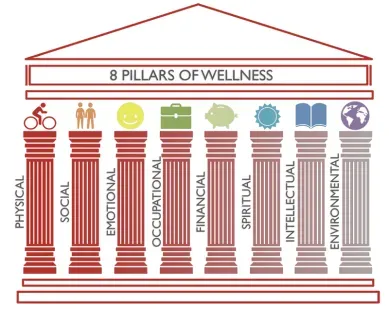Blog

Heart-Centered Networking: Build a Business That Thrives with Purpose Have you ever wondered why some businesses seem to thrive while others, with equally great products or services, struggle to stay afloat? The secret often lies in networking—not just the exchange of business cards but the creation of meaningful, authentic connections. Networking isn’t about hustling harder or adding names to your contact list. It’s about building relationships that align with your values and support your vision. When done intentionally, networking becomes a powerful compass, guiding you toward success with purpose and heart. Take Gerri, for example. After surviving a major health scare, she longed for a career that aligned with her passions. Stuck in an unfulfilling job, she turned to networking as her lifeline. By connecting with mentors and a supportive community that shared her vision, Gerri transformed her passion for wellness into a thriving business. Her network didn’t just open doors—it became the foundation of her success. Here’s how you can make networking work for you: Focus on Relationships : Look for common ground with those who share your values. Listen and Engage : Genuine interest in others creates trust and lasting connections. Find Your People : Build a community that supports and uplifts you. Embrace Growth : Learn from every interaction and expand your knowledge. Create Opportunities : Collaborate and leverage referrals to build residual income. Networking isn’t just a business strategy—it’s a way to create a foundation of support, growth, and shared purpose. By prioritizing relationships over transactions, you’ll develop a network that empowers you to achieve your dreams. Ready to take the next step? Start building authentic connections today and watch how they transform your business—and your life. #AuthenticNetworking #heartdrivenbusiness #NerworkingSuccess

Life is full of transitions, and navigating those changes can feel overwhelming at times. Whether it's a career shift, lifestyle adjustment, or personal growth, maintaining stability while adapting to something new can be a challenge. The good news is that supporting life changes doesn't have to come at the cost of your health, happiness, or sanity. With the right mindset and strategies, you can embrace transformation while still feeling grounded and at peace. Physical Health Maintaining a healthy body through regular exercise, proper nutrition, adequate sleep, and avoiding harmful habits like smoking or excessive alcohol consumption. Social Health Building and maintaining strong, supportive relationships with family, friends, and community. Positive social interactions are vital for emotional and mental well-being. Mental & Emotional Health Managing stress, maintaining mental clarity, and developing emotional resilience. Practices such as mindfulness, therapy, and emotional expression can support this pillar. Occupational or Vocational Health Finding fulfillment and purpose in your work or daily activities, and balancing work-life stress. Being engaged in meaningful work promotes overall satisfaction. Financial Health Managing money wisely, reducing financial stress, and planning for the future to maintain a secure financial position. Financial stability contributes to overall well-being. Spiritual Health Developing a sense of purpose, meaning, and connection, which may involve religion, meditation, mindfulness, or a deep sense of inner peace. Intellectual Health Engaging in continuous learning, stimulating your mind, and encouraging creativity. This could involve reading, puzzles, learning new skills, or engaging in discussions that challenge your thinking. Environmental Health Ensuring that the spaces you live, work, and play in are safe, healthy, and promote well-being. This includes clean air, water, and a non-toxic living environment. Remember, change is an inevitable part of life, but it doesn’t have to be a source of stress. By focusing on balance, self-care, and staying present, you can support your life changes without losing sight of what truly matters. Everyone’s journey is unique, so share what has worked for you, and let's keep this conversation going! Comment below with your thoughts or tips on how you navigate life changes—I'd love to hear your insights.

Stepping away from a high-stress job for health reasons can feel daunting, but it's often necessary to restore balance and well-being. When you're constantly under pressure, your body is in a heightened state of stress, which can wreak havoc on your physical and mental health. Taking time for rest and reflection is vital to regaining control of your life and recovering from the strain caused by work-related stress. Rest isn’t just about sleeping more. It’s about giving your mind the space to process thoughts, emotions, and experiences that have been piling up in the background. This kind of reflection helps you reassess priorities, gain clarity, and identify changes you need to make for a healthier future. Quality rest and deep reflection allow you to return to work or any new opportunity with a fresh perspective and renewed energy. Sleep, in particular, plays a critical role in this process. During quality sleep, your body undergoes vital restoration processes. It heals and regenerates cells, supports immune function, and regulates stress hormones. Your mind benefits, too, by consolidating memories and processing the day’s events, leaving you better equipped to handle life’s challenges. If you're feeling overwhelmed by your job, maybe it’s time to step back and prioritize your well-being. Start by improving your sleep and giving yourself permission to reflect on what truly matters. Commit to a week of prioritizing your rest, and notice the positive changes in your energy, mood, and overall health. Take control of your well-being today—your body and mind will thank you! And if that is not enough to move your needle, ask me for my free guide on how to improve sleep quality.

In today’s fast-paced world, finding ways to support our cognitive function and overall brain health is more crucial than ever. One potent natural compound gaining recognition for its benefits in this area is curcumin, derived from the turmeric root. Celebrated for its anti-inflammatory properties, curcumin offers promising support to help heal both body and mind, especially following stressful life transitions. Curcumin is known for its ability to support normal liver detoxification activity and promote healthy immune responses. Its powerful antioxidant properties protect neurons from the negative effects of free radicals, helping to maintain neurological and cognitive health as we age. This makes it an excellent ally for anyone navigating periods of change that may impose stress on the body and mind. Inflammation often plays a role in cognitive decline and mental fatigue. Curcumin’s anti-inflammatory properties help in reducing such responses, thereby promoting cognitive clarity and function. It aids in maintaining healthy immune cell-brain interactions, which are vital for preserving brain health. Furthermore, curcumin supports the normal production of detoxification enzymes, essential for protecting cell integrity and maintaining overall health. By promoting a healthy immune system, it assists in keeping our minds resilient and balanced during challenging times. While curcumin offers a natural approach to bolster cognitive and brain health, incorporating it into a balanced lifestyle is key. It should be part of a holistic wellness strategy that includes proper nutrition, regular exercise, and adequate sleep. These statements have not been evaluated by the Food and Drug Administration. This product is not intended to diagnose, treat, cure or prevent any disease. Empower your well-being with the support of curcumin. Embrace its benefits as a step towards maintaining cognitive health and finding equilibrium amidst life’s transitions. I've done a lot of research over the years and here is the one that I find works the best!

When we hear about omega-3 fatty acids, we often think about heart health. They’re well-known for supporting cardiovascular function, lowering blood pressure, and reducing inflammation. But what if I told you that omega-3s are also a powerhouse for your brain? Omega-3 fatty acids, particularly DHA and EPA, are essential for brain health, helping to enhance memory, mental clarity, and overall cognitive function. In fact, DHA is a major structural component of the brain, and without adequate levels, our mental performance can take a hit. This becomes especially important when facing life changes, such as transitioning to a new career due to health reasons or starting a new job for any reason. Adjusting to a new role can be mentally demanding, requiring a sharp memory and quick problem-solving skills. Omega-3s provide your brain with the nutrients it needs to stay focused and adapt quickly, reducing mental fog and improving recall. Numerous studies have shown that omega-3s play a critical role in cognitive function. They promote the growth and repair of brain cells, reduce oxidative stress, and even improve communication between neurons. This leads to better mental performance, sharper decision-making, and an increased ability to focus—traits that are invaluable when navigating new challenges. While it’s easy to think of omega-3s as heart health champions, they are an unsung hero when it comes to cognitive health. Whether you're tackling new professional challenges or just trying to maintain mental sharpness, incorporating omega-3-rich foods like fish, flaxseeds, and walnuts into your diet can give your brain the boost it needs. So, as you prioritize your health, remember that omega-3s are doing more than just supporting your heart—they're powering your mind. Ready to boost your brain power and mental clarity? Start incorporating my favorite omega-3s into your routine today for a sharper, more focused you!

Navigating career transitions or significant life changes can feel overwhelming. The uncertainty, new responsibilities, and fear of the unknown can trigger stress and cloud your judgment. However, there’s a simple, effective tool that can help you navigate these periods with greater clarity and ease: mindfulness. Mindfulness practices like meditation and deep breathing are proven ways to reduce stress, improve focus, and increase emotional resilience. These techniques can be especially powerful when you're facing career shifts or major life transitions. Here's how you can integrate mindfulness into your daily routine to stay grounded and clear-headed during these times: 1. Morning Meditation Begin your day with a short 5-10 minute meditation. Find a quiet space, close your eyes, and focus on your breath. If your mind wanders, gently bring your attention back to your breathing. This practice helps set a calm and intentional tone for the rest of the day, no matter what challenges come your way. 2. Practice Deep Breathing When stress hits, take a moment to pause and focus on your breath. Inhale deeply through your nose, hold for a few seconds, and then exhale slowly through your mouth. Repeat this process 3-5 times. This simple act can help clear mental fog and restore a sense of control. 3. Mindful Breaks Throughout your day, take short breaks to check in with yourself. Stretch, breathe deeply, or take a short walk. These mindful moments will allow you to reset, regain focus, and manage stress before it builds up. 4. Journaling for Clarity After meditating, take a few minutes to jot down your thoughts. Writing out what’s on your mind can help bring clarity and perspective, allowing you to see your career or life transition in a more organized and manageable way. 5. Mindful Eating Slow down during meals, and take time to savor each bite. Focusing on the sensory experience of eating can help center your mind, giving you a break from career-related stress and promoting overall well-being. 6. Gratitude Practice At the end of each day, reflect on three things you're grateful for. This simple practice shifts your focus from what’s stressing you to what’s going well, helping to create a more positive mindset during transitions. 7. Visualization Use mindfulness to visualize your desired outcome. Whether it's a successful career change or adapting to a new life chapter, visualizing positive outcomes can reduce anxiety and boost confidence. 8. Body Scan Meditation Take a few minutes to mentally scan your body, from head to toe, noticing areas of tension or discomfort. This practice helps you connect with your body, bringing awareness to stress so you can release it. 9. Grounding Techniques If you’re feeling overwhelmed, try grounding yourself by focusing on your surroundings. Use your senses to notice what you see, hear, and feel. This practice helps you stay present and reduces the tendency to get lost in worries about the future. 10. Positive Affirmations Repeat positive affirmations during moments of doubt or stress. Phrases like "I am capable of navigating this change" or "I trust the process" can reframe your thoughts and help reduce anxiety. 11. Evening Wind-Down Meditation End your day with a short meditation or deep breathing exercise to release any lingering stress. This helps you wind down and prepares you for restful sleep, which is essential for maintaining clarity and resilience. Incorporating mindfulness can help you handle life's transitions with more clarity and confidence, turning potential overwhelm into an opportunity for growth.

Brain health is the foundation of overall well-being, influencing not only our cognitive functions but also our emotional and physical health. Often, we think of brain health in terms of memory, concentration, and problem-solving, but it extends much further. A healthy brain helps us maintain emotional balance, manage stress, and even stay physically strong. When our brain is functioning optimally, we experience better mood regulation, improved focus, and a greater ability to handle life’s challenges. This is especially important during times of career pressure or transition. High stress, burnout, and demanding workloads can take a toll on our brain health, leading to cognitive fatigue, emotional instability, and even physical symptoms like headaches and insomnia. In these moments, maintaining brain health becomes not just a matter of mental clarity but also a way to protect emotional and physical well-being. For many, recognizing the need to step away from a job due to mental, emotional, or physical health reasons is a difficult decision, but it can be crucial for long-term well-being. Transitioning to a healthier, less stressful environment allows the brain to recover from chronic stress and rebuild its resilience. Healing the brain during such times is essential for a smoother adaptation to new career paths or lifestyle changes. Supporting brain health during these transitions involves several key practices: eating a nutrient-rich diet, including brain-boosting foods like omega-3 fatty acids, curcumin, and magnesium; getting regular exercise; practicing mindfulness or meditation; and prioritizing sleep. These habits not only protect cognitive function but also improve emotional resilience and physical stamina. In times of career stress or change, taking care of your brain is critical. Prioritizing brain health will help you navigate transitions with clarity, balance, and confidence, while supporting overall well-being.

Welcome to Brain Power Month! October marks Brain Power Month, a perfect time to focus on brain health and maintaining optimal cognitive function. Our brains work around the clock, managing everything from complex decision-making to everyday tasks. However, many of us struggle with brain fog—periods of mental fatigue, forgetfulness, or difficulty concentrating. The good news is that small, manageable lifestyle adjustments can make a big difference in your cognitive function, without the need for drastic measures. This month, we’ll explore safe, simple ways to help improve mental clarity, including healthy lifestyle habits and nutritional strategies. Please note that while these suggestions may support overall brain health, they are not intended to diagnose, treat, cure, or prevent any disease. Always consult with a healthcare provider before making any changes to your health routine. Here’s a look at what we’ll cover: Curcumin : a naturally occurring compound found in turmeric, has been studied for its potential role in supporting a healthy inflammatory response, which is important for overall brain health. Magnesium : an essential mineral, is known for its role in supporting relaxation and maintaining normal nervous system function. Omega-3 fatty acids : are crucial for brain function and are found in fish and certain plant oils. We’ll discuss how these fatty acids may support cognitive performance. In addition to supplements, we’ll focus on non-supplement strategies for enhancing brain power, including: Mindfulness and relaxation techniques, which can help reduce stress and improve focus. Exercise : for boosting blood flow to the brain, potentially supporting memory and cognitive function. Adequate hydration : and its impact on preventing cognitive slowdowns like brain fog. Quality sleep : which plays a crucial role in brain cell regeneration and memory retention. Throughout Brain Power Month, we’ll provide practical, evidence-based tips to help you maintain a healthy brain. Stay tuned as we share these insights and remember to always seek advice from your healthcare provider before starting any new regimen. Let’s power up your brain—one step at a time!

